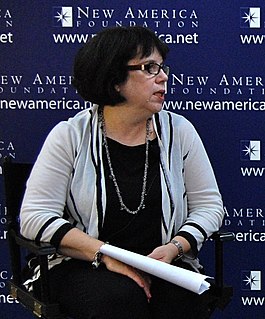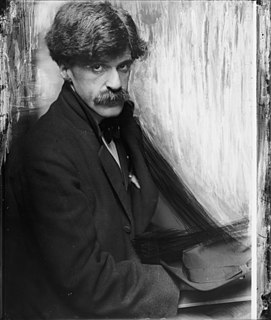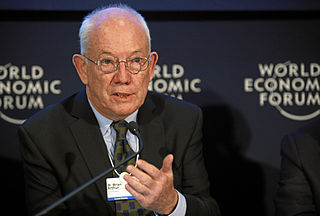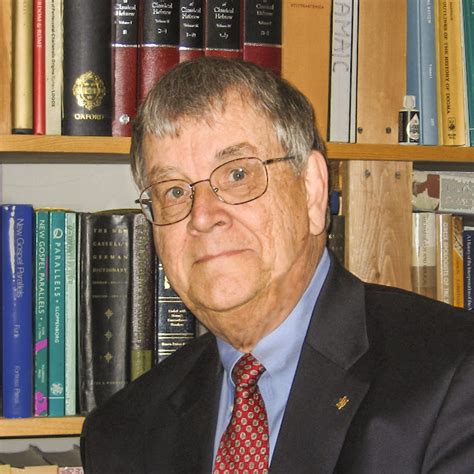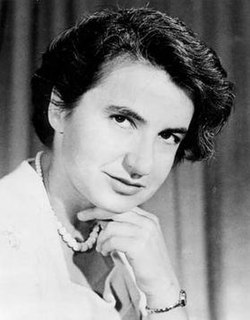A Quote by Michael Behe
In private many scientists admit that science has no explanation for the beginning of life... Darwin never imagined the exquisitely profound complexity that exists even at the most basic levels of life.
Related Quotes
Beyond the Einsteins and Darwins, most scientists don't have chroniclers. Einstein and Darwin were geniuses - that helps. Many scientists do amazing stuff, but it just disappears into footnotes and dusty medical journals. If I were masochistic enough, I could spend the rest of my life rescuing scientists. Most of them aren't natural self-promoters.
I find that in the process of making a film you're constantly discovering things that you never even imagined would work at the beginning. Actors come into the film and do things you never even imagined. Production designers come in, the director of photography lights it in a way that you never imagined. So, it's always evolving, always exciting.
Life is eternal; death only punctuates it for a short while. After a little break life starts again. Death is ultimate truth; life is truth beyond ultimate. Life is never destroyed; it just keeps on changing shapes. Endless processes are attached with this life; many stages are there in this grand journey of life. From an insect to an enlightened soul it keeps on changing. Creation is always beautiful in the beginning. It can be beautiful all the time also. What is purpose of life? It's evolution to higher levels
Complexity is looking at interacting elements and asking how they form patterns and how the patterns unfold. It's important to point out that the patterns may never be finished. They're open-ended. In standard science this hit some things that most scientists have a negative reaction to. Science doesn't like perpetual novelty.
Real scientists are required to play by the rules without exception. Creationists follow the rules of science only so long as it is expedient. Then they resort to miracles. But resorting to miracles is not offering an explanation: it is asserting that no real explanation exists. Whenever creationists resort to miracles, they are admitting that their system cannot account for the facts of nature; it cannot explain the world.
You look at science (or at least talk of it) as some sort of demoralising invention of man, something apart from real life, and which must be cautiously guarded and kept separate from everyday existence. But science and everyday life cannot and should not be separated. Science, for me, gives a partial explanation for life. In so far as it goes, it is based on fact, experience and experiment.
In times like ours, where the growing complexity of life leaves us barely the time to read the newspapers, where the map of Europehas endured profound rearrangements and is perhaps on the brink of enduring yet others, where so many threatening and new problems appear everywhere, you will admit it may be demanded of a writer that he be more than a fine wit who makes us forget in idle and byzantine discussions on the merits of pure form.
Normal science, the activity in which most scientists inevitably spend most all their time, is predicated on the assumption that the scientific community knows what the world is like. Normal science often suppresses fundamental novelties because they are necessarily subversive of its basic commitments.
An atheist before Darwin could have said, following Hume: I have no explanation for complex biological design. All I know is that God isn't a good explanation, so we must wait and hope that somebody comes up with a better one. I can't help feeling that such a position, though logically sound, would have left one feeling pretty unsatisfied, and that although atheism might have been logically tenable before Darwin, Darwin made it possible to be an intellectually fulfilled atheist.
Evolution is a very, very important idea. It is the explanation for all of life - a stunningly simple, yet powerful explanation. If you think about it, before Darwin, we hadn't the foggiest idea of how we came into being. Now we do. It's still such an exciting idea that it is well worth everybody understanding it.
Rifkin's assertions bear no relationship to what I have observed and practiced for 25 years ... Either I am blind or he is wrong - and I think I can show, by analyzing his slipshod scholarship and basic misunderstanding of science, that his world is an invention constructed to validate his own private hopes ... Rifkin shows no understanding of the norms and procedures of science: he displays little comprehension of what science is and how scientists work.

